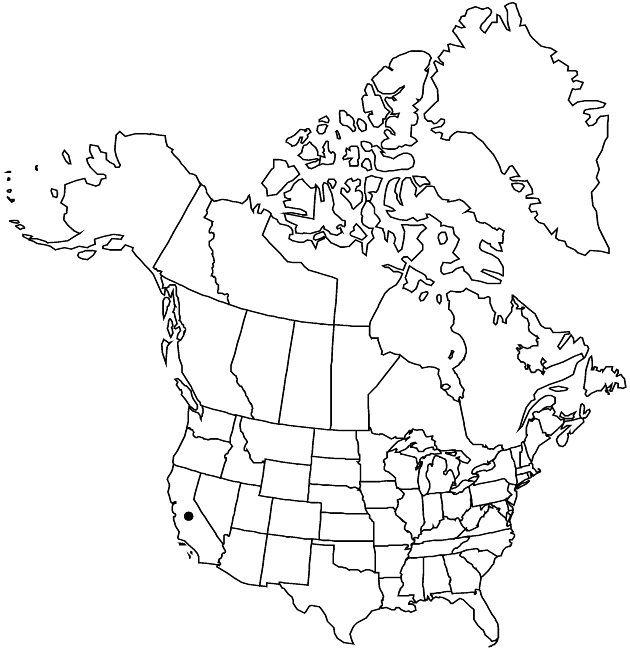Difference between revisions of "Packera ganderi"
Phytologia 49: 47. 1981.
FNA>Volume Importer |
imported>Volume Importer |
||
| (3 intermediate revisions by 2 users not shown) | |||
| Line 8: | Line 8: | ||
}} | }} | ||
|common_names=Gander’s ragwort | |common_names=Gander’s ragwort | ||
| + | |special_status={{Treatment/ID/Special_status | ||
| + | |code=E | ||
| + | |label=Endemic | ||
| + | }}{{Treatment/ID/Special_status | ||
| + | |code=C | ||
| + | |label=Conservation concern | ||
| + | }} | ||
|basionyms={{Treatment/ID/Basionym | |basionyms={{Treatment/ID/Basionym | ||
|name=Senecio ganderi | |name=Senecio ganderi | ||
|authority=T. M. Barkley & R. M. Beauchamp | |authority=T. M. Barkley & R. M. Beauchamp | ||
| + | |rank=species | ||
|publication_title=Brittonia | |publication_title=Brittonia | ||
|publication_place=26: 106, fig. 1. 1974 | |publication_place=26: 106, fig. 1. 1974 | ||
| Line 39: | Line 47: | ||
-->{{#Taxon: | -->{{#Taxon: | ||
name=Packera ganderi | name=Packera ganderi | ||
| − | |||
|authority=(T. M. Barkley & R. M. Beauchamp) W. A. Weber & Á. Löve | |authority=(T. M. Barkley & R. M. Beauchamp) W. A. Weber & Á. Löve | ||
|rank=species | |rank=species | ||
| Line 53: | Line 60: | ||
|publication title=Phytologia | |publication title=Phytologia | ||
|publication year=1981 | |publication year=1981 | ||
| − | |special status= | + | |special status=Endemic;Conservation concern |
| − | |source xml=https:// | + | |source xml=https://bitbucket.org/aafc-mbb/fna-data-curation/src/2e0870ddd59836b60bcf96646a41e87ea5a5943a/coarse_grained_fna_xml/V19-20-21/V20_1310.xml |
|tribe=Asteraceae tribe Senecioneae | |tribe=Asteraceae tribe Senecioneae | ||
|genus=Packera | |genus=Packera | ||
Latest revision as of 21:00, 5 November 2020
Perennials, 30–80+ cm; fibrous-rooted (bases weakly spreading). Stems 1, glabrous or bases hairy. Basal leaves (and proximal cauline, relatively turgid or leathery) petiolate; blades reniform to suborbiculate, 40–70+ × 40–80+ mm, bases truncate to cordate, margins dentate or shallowly lobed. Cauline leaves abruptly reduced (petiolate or sessile, oblanceolate, pinnatifid; distal sessile, bractlike). Heads 3–6+ in compact, cymiform arrays. Peduncles ebracteate (or bractlets 1–2), glabrous. Calyculi 0 or inconspicuous. Phyllaries (13–)21, dark green with yellow margins, 8–11+ mm, glabrous. Ray florets 13 or 21; corolla laminae 10–12+ mm. Disc florets 40–60+; corolla tubes 3–4 mm, limbs 2.5–3.5 mm. Cypselae 5–6 mm, glabrous; pappi 5–7 mm.
Phenology: Flowering mid Apr–late May.
Habitat: Recently burned chaparral on mountain slopes, gabbroic soils
Elevation: 700–1100 m
Discussion
Of conservation concern.
Packera ganderi is known only from the mountain ranges of San Diego County, where it has been collected from three sites.
Selected References
None.
